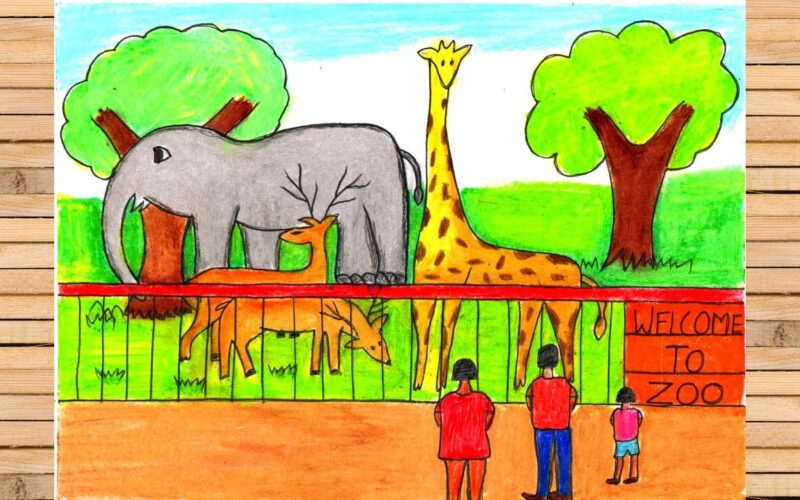November 07, 2023 – The Haryana government has embarked on a visionary project to establish a colossal 10,000-acre zoo safari in the Aravalis of Gurgaon and Nuh, with Spanish company Tagbin selected to design this magnificent sanctuary. Although the grand plans for the zoo safari have been met with opposition from environmentalists, it aims to become a pioneering conservation initiative on a global scale.
Tagbin has been entrusted with the monumental task of crafting the design for the Aravali zoo safari, and it is expected to deliver it within a span of three months. The proposed design will undergo scrutiny and evaluation by the Haryana state government, the Ministry of Environment, Forest and Climate Change (MoEFCC), and the Central Zoo Authority before it can be granted final approval.
Opponents of the zoo safari project argue that it may compromise the pristine Aravali landscapes, which are already dwindling. The Aravalis represent one of the few surviving natural wonders in the region, making the preservation of these hills a subject of great concern.
Tagbin, in collaboration with The Logical Zoo, a specialized design and consultancy firm for zoos and aquariums, is set to craft the blueprint for the Aravali zoo safari. The company is known for designing the Sharjah Park safari in the United Arab Emirates. The Haryana state government aims for this safari to be an unparalleled global animal facility, emphasizing the importance of wildlife conservation and the provision of natural habitats for animals.
If the zoo safari is executed according to its grand plan, it will become the largest project of its kind worldwide. The proposal encompasses various aspects, including the creation of fenced-off zones designed to accommodate an array of animals, from big cats to amphibians and herbivores. Additionally, the safari will house a bird park and provide nature trails for trekkers to explore.
The Sharjah Park, situated in the UAE’s Al Dhaid, currently holds the title of the largest zoo safari, occupying around 2,000 acres and accommodating 120 species of animals. The Haryana government envisions its zoo safari as a one-of-a-kind facility that will contribute significantly to wildlife conservation. The project outlines the provision of dedicated habitats for animals, ensuring their comfort and well-being.
The development plan for the safari is divided into three phases, with the first phase set to commence within two years. The 10,000 acres allocated for the safari fall within an area of the Aravalis that has experienced environmental degradation over the years, making the preservation of this land all the more vital.
The earmarked regions in Gurgaon will encompass PLPA areas in Sakatpur, Gairatpur Bas, and Shikohpur, along with forest patches in Bhondsi, Ghamroj, Alipur, Tikli, Aklimpur, Naurangpur, and Bar Gujjar. In the adjoining Nuh district, the safari will encompass Kota Khandewla, Gangani, Mohamadpur Ahir, Kharak, Jalalpur, Bhango, and Chalka.
Notably, the land designated for the safari is part of a broader plan to facilitate compensatory afforestation in response to the loss of 26,000 acres of tropical forests in Great Nicobar due to a major infrastructure project by the central government. The compensatory afforestation strategy involves reforestation efforts in the Aravalis, approximately 2,400 kilometers away, as a means of mitigating the environmental impact of the project in Nicobar. The Aravali zoo safari project represents a significant step toward safeguarding biodiversity and promoting responsible conservation efforts in the region.
